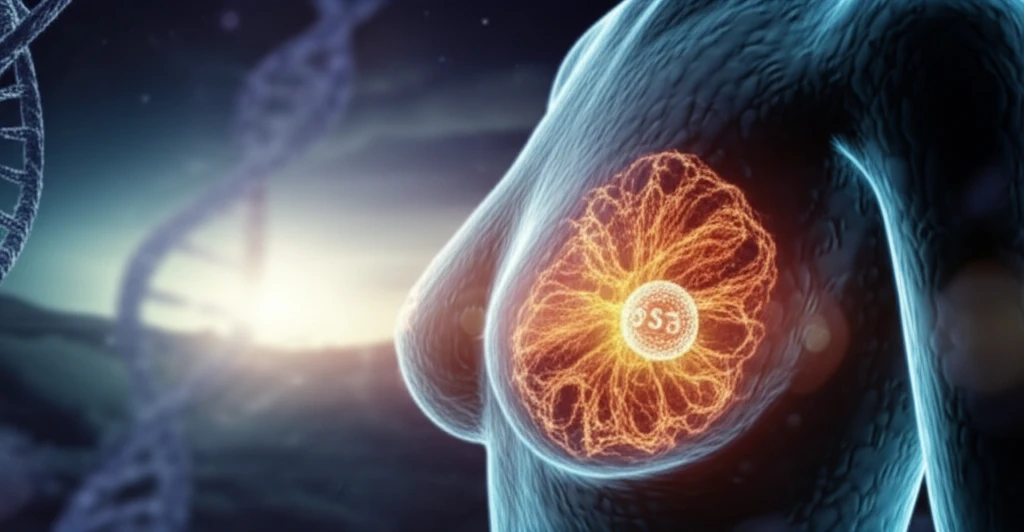
Decoding p53: Can This Protein Predict Breast Cancer Outcomes?
"New research explores p53's potential as a prognostic marker in triple-negative breast cancer, offering hope for personalized treatment strategies."
Breast cancer is a complex disease, and triple-negative breast cancer (TNBC) is one of its most challenging subtypes. TNBC is defined by the absence of estrogen receptor (ER), progesterone receptor (PR), and human epidermal growth factor receptor 2 (HER2), making it less responsive to targeted therapies. This aggressive form of breast cancer often requires a more intensive treatment approach, and researchers are constantly seeking new ways to predict outcomes and personalize care.
One area of intense research is the role of the p53 protein. Often called the "guardian of the genome," p53 is a tumor suppressor that plays a critical role in DNA repair, cell cycle control, and programmed cell death (apoptosis). Mutations in the TP53 gene, which encodes the p53 protein, are among the most common genetic alterations in human cancers, including breast cancer. These mutations can lead to a dysfunctional p53 protein, disrupting its normal tumor-suppressing activities.
A study presented in the Annals of Oncology explored the potential of p53 as a prognostic marker in patients with node-negative TNBC. The study aimed to determine whether the expression level of p53 could predict outcomes in these patients, potentially offering valuable information for treatment planning and risk assessment.
What the Study Revealed About p53's Role in TNBC

Researchers retrospectively reviewed the data of 7,739 patients diagnosed with surgically treated invasive breast cancer at Samsung Medical Center between January 2003 and April 2013. Of these patients, 1,129 were diagnosed with TNBC. The study focused on several factors, including:
- Tumor size
- Nuclear grade
- Presence of lymphovascular invasion (LVI)
- TNM stage
- Expression of estrogen receptor (ER), progesterone receptor (PR), and HER2
- Ki-67 expression
- p53 expression
What This Means for TNBC Treatment
This research suggests that p53 expression could serve as a valuable prognostic factor in early-stage TNBC, particularly in patients without lymph node metastasis. While further research is needed to validate these findings and explore the underlying mechanisms, this study highlights the potential of p53 as a target for personalized treatment strategies in TNBC.
